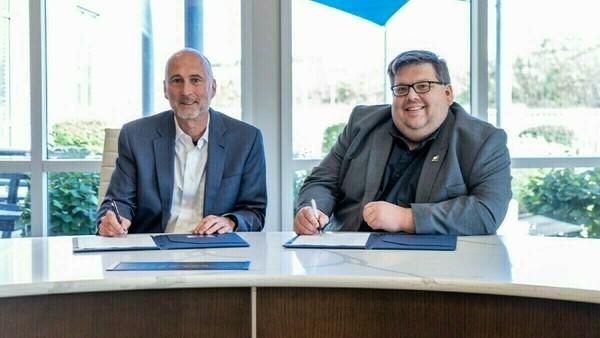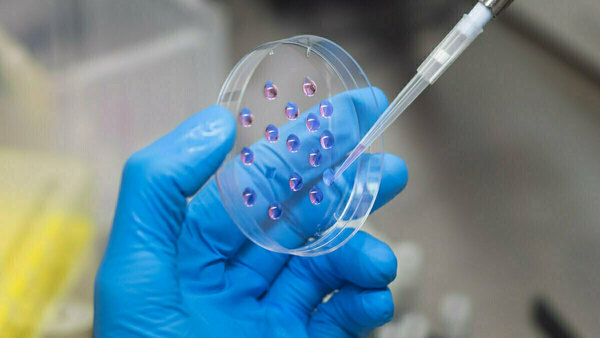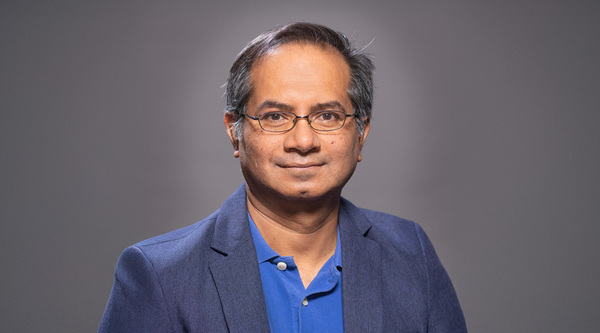End poverty, preserve the planet, build community: A Uganda farming institute’s bold mission
Ten years after its founding, an ambitious sustainable farming community in Uganda is poised to enter a promising new phase of growth.
Co-founded by Keough School of Global Affairs professor Emmanuel Katongole in 2014, the Bethany Land Institute’s 400-acre campus houses a working farm, a training and research center, a forest and a tree nursery that is on track to plant 300,000 trees by 2030. Its facilities also include housing for the young-adult trainees in its two-year caretaker education program, who take courses on sustainable land use, economic entrepreneurship and spiritual formation.

“Our motto has been to start small, to start now and to be very ambitious,” Katongole said to supporters gathered for the unveiling of the Bethany Land Institute’s new five-year strategic plan. “We have laid the foundation and during the next five years we will see tangible effects — signs of transformation marked by food abundance, the regeneration of soils and the reduction of poverty — all things we will be able to measure.”
Katongole, a professor of theology and peace studies at the University of Notre Dame, has served as the lead visionary for the Bethany Land Institute since its inception. A Catholic priest ordained by the Diocese of Kampala, Uganda’s capital city, he established the institute with two priest friends after being inspired by the message of Laudato Si’, Pope Francis’s 2015 encyclical on the environment. The document sets forth the concept of integral ecology — the interconnectedness of humans and the environment — that serves as the lodestar for the institute and its leadership.

Through its Sowing Hope research platform the institute plans to study the health of its soil, evaluate its impact on local communities and caretakers and launch a longitudinal study following caretaker program graduates. This research is supported by the Ford Family Program in Human Development & Solidarity at the Keough School’s Kellogg Institute for International Studies, the Laudato Si’ Research Institute at the University of Oxford and the University of Makerere in Uganda. Other plans include creating an incubation center for new regenerative farming businesses, expanding the institute’s existing farmers market, providing courses in economics and business and expanding outreach to local parishes.
“Throughout Africa, the biggest landowners are churches,” Katongole said.
The institute’s tri-fold mission of reducing poverty, preserving the environment and providing spiritual formation brings together specialists in science and spirituality. Two dioceses in Uganda are sending seminarians for formation at the Bethany Land Institute, and Katongole has enlisted the expertise of renowned soil conservationist Ray Archuleta, a leading expert in the regenerative farming movement. Archuleta, who was featured in the 2020 Netflix documentary Kiss the Ground, has made two visits to the institute to teach trainees in its caretaker program. Archuleta and Katongole began corresponding in 2021 when Archuleta emailed Katongole after reading his book on rediscovering religious faith after the Rwandan genocide. With their shared belief that the vitality of people and planet go hand in hand, the two are kindred spirits.

“Regenerative agriculture imitates nature’s beauty, principles, patterns and intelligent design,” said Archuleta, who addressed the institute’s recent gathering of supporters. “This facilitates self-healing in human and biological communities.”
The Bethany Land Institute was created with the understanding that Uganda’s problems of deforestation, food insecurity and poverty are interconnected. That means the solutions are interconnected too. At the heart of the solutions lies a commitment to creating community that underlies and energizes all of the institute’s efforts.
“We have been building a movement because we want to go far,” Katongole said. “If you want to go fast, walk alone. If you want to go far, walk with others.”
Bethany Land Institute at UN Climate Conference (COP29)
Thanks to Uganda's Ministry of Water and Environment, the work of the Bethany Land Institute was featured at the UN climate conference COP29 in Azerbaijan.
Originally published by at keough.nd.edu on November 26, 2024.
Latest Research
- Karen Deak named Executive Director of Notre Dame’s IDEA CenterKaren Imgrund Deak, pictured above, has been named executive director of the IDEA Center at the University of Notre Dame. Karen…
- Hope, Legacy, and the Fight Against Brain Cancer: The Story Behind the Hahn-Pflueger Brain Cancer Scholar Program“The most powerful thing in this world is hope,” said Rex Pflueger,…
- Notre Dame, Beacon Health System announce new, multiyear research collaborationThe University of Notre Dame and Beacon Health System have announced a new, multiyear research collaboration. Through this agreement, Notre Dame and Beacon will jointly develop collaborative, health-focused research projects that are of interest to both organizations, particularly in the areas of oncology and health data.
- Fighting to cure brain cancerTo better understand glioblastoma, an aggressive brain cancer, a Notre Dame researcher thought outside the box—and off planet Earth. Read the story
- ND electrical engineer Ranjan Singh named founding editor-in-chief of APL Engineering PhysicsRanjan Singh, professor of electrical engineering at the University of Notre Dame and pioneer in terahertz photonics, spintronics and metamaterials, has been named founding editor-in-chief of Applied Physics Letters (APL) Engineering Physics.
- Exceptional faculty recognized as Notre Dame’s 2025 All-Faculty TeamNotre Dame has a long history of outstanding student-athletes being named to All-America teams. The University also has a tradition of honoring exceptional faculty on the football field each fall. At every home game, the provost honors a distinguished member of the faculty. These seven scholar-teachers…











